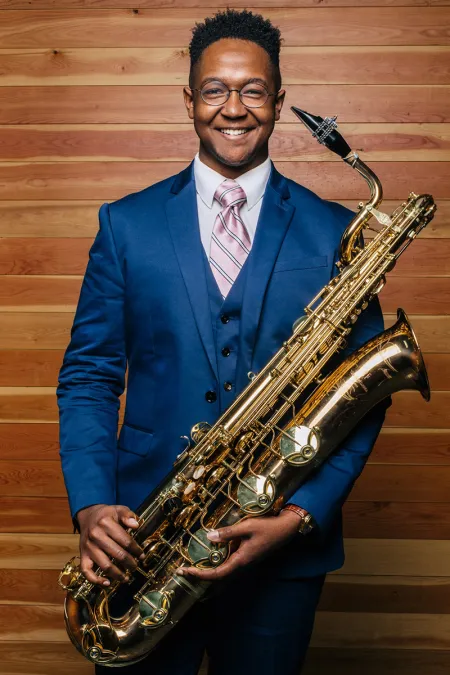Steven Banks has become the first saxophonist to win the Young Concert Artists International Auditions, a prestigious award that has launched the careers of many world-renowned musicians in its 58-year history.
Banks, an assistant professor of saxophone at Ithaca College, received one of four first prizes after the final round of the 2019 auditions on November 17 in New York City. The award presents winners in debut recitals in New York and Washington, D.C., and offers a three-year comprehensive management contract to book performances around the world.
“I’m extremely excited about the opportunities that this opens up for me as well as for the classical saxophone community,” Banks said. “It’s surreal and certainly something that I’ll always look back on as a life-changing moment.”
Musicians who participate in the Young Concert Artists Auditions must be between the ages of 16 and 26. Previous winners have included the pianist Emanuel Ax, the violinist Pinchas Zukerman, and the soprano Dawn Upshaw.

